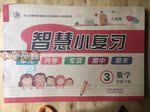题目内容
阅读下面短文,根据下列提示:1)汉语提示,2)首字母提示,3)语境提示,在每个空格内填入一个适当的英语单词,并将该词完整地写在试题下方相对应的横线上。所填单词要求意义准确,拼写正确。
You will never imagine that such a small invention as a kite can1. (有益) us so much! Flying kites is a popular hobby in many countries of the Far East where
2. (漂亮) decorated kites appear3. different colors.In China there is a special Kites Day on which children and4. a fly kites together happily.A flat kite is the oldest and 5. (简单的) type of kite.It flies6. b air flows over and under the kite's wing.The pressure under the wing helps the kite lift into the air.Kites have also7. used in experiments.Early scientists 8. s kites up into the air to measure temperature at different9. (高度). Kites were also used to develop airplanes.10. is known to us that the Wright Brothers experimented with kites before they flew the first airplane.
1.benifit
2.beautifully
3.in
4.adults
5.simplest
6.because
7.been
8.sent
9.heights
10.It
【解析】本篇短文叙述了小小风筝给我们带来的益处: 使人愉快,也用于科学研究。
1.benefit 考查动词 。根据前面情态动词 can 确定为动词原形,benefit sb 对某人有益。
2.beautifully 考查副词。根据后面动词 decorated kites 被装饰的风筝,副词修饰动词,所以用副词形式。
3.in 考查介词。根据前面动词appear 确定为以不同的颜色出现,故用介词in。
4.adults 考查名词。 根据整个句子In China there is a special Kites Day on which children and(4) a fly kites together happily.在中国有特殊的风筝节,在风筝节这一天孩子们和____在一起高兴的放风筝,根据句意应该是成年人,故用adults .
5.simplest 考查形容词。根据句子A flat kite is the oldest and (80) (简单的) type of kite.And连接并列成分,因为前面是oldest 最高级,所以后面简单simple也该用最高级,所以填simplest。
6.because 考查连词。It flies (81) b air flows over and under the kite's wing.前句:风筝飞,后句:空气在风筝翅膀的上下流动,可以判断出前后句之间为因果关系,所以填because。
7.been 考查被动语态。Kites have also(82) used in experiments风筝也被用于实验,风筝和使用之间是被动关系,现在完成时的被动式的构成:have been done, 所以填been。
8.sent 考查动词。Early scientists (8) s kites up into the air to measure temperature at different (9) (高度),早期的科学家把风筝发射向空中是为了测量不同高度的温度,根据句意应该是发射,固定短语 :send sth into…, send 的过去为sent ,所以填sent。
9.heights 考查名词。 根据居中at different (84) (高度), 无论介词at 还是形容词 different 都应该填名词高度,所以填height。
10.填it .
考点:短文填词

 智慧小复习系列答案
智慧小复习系列答案